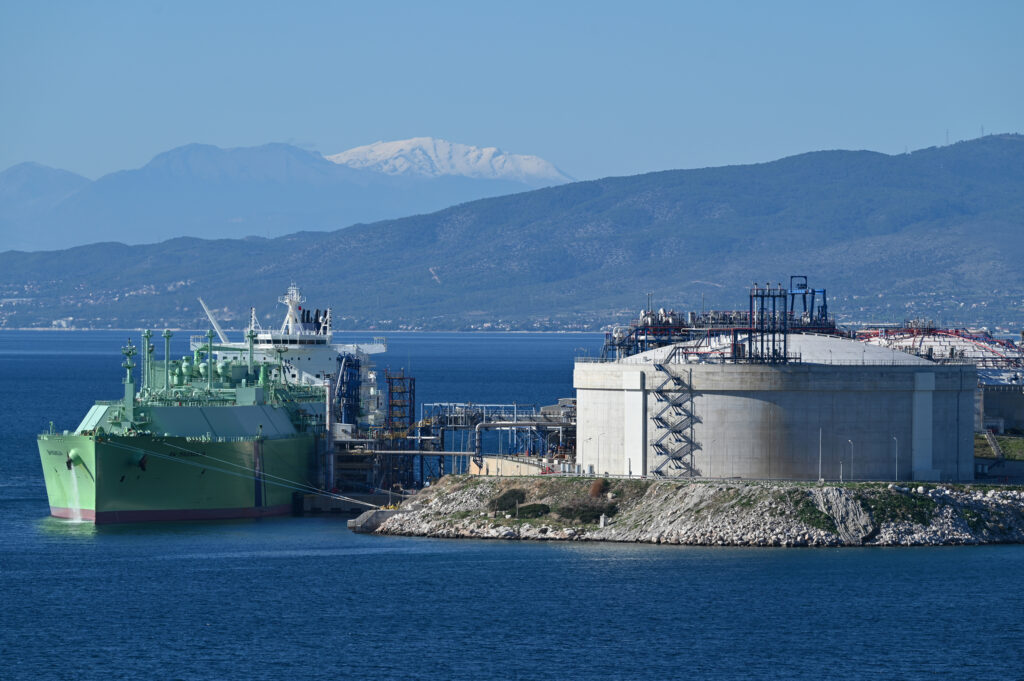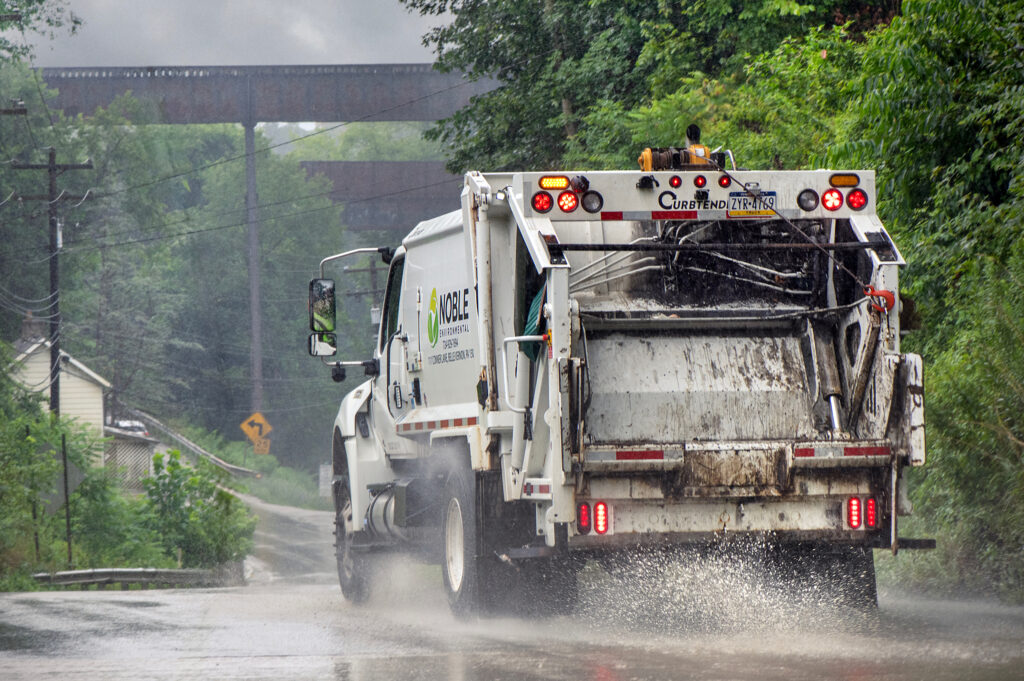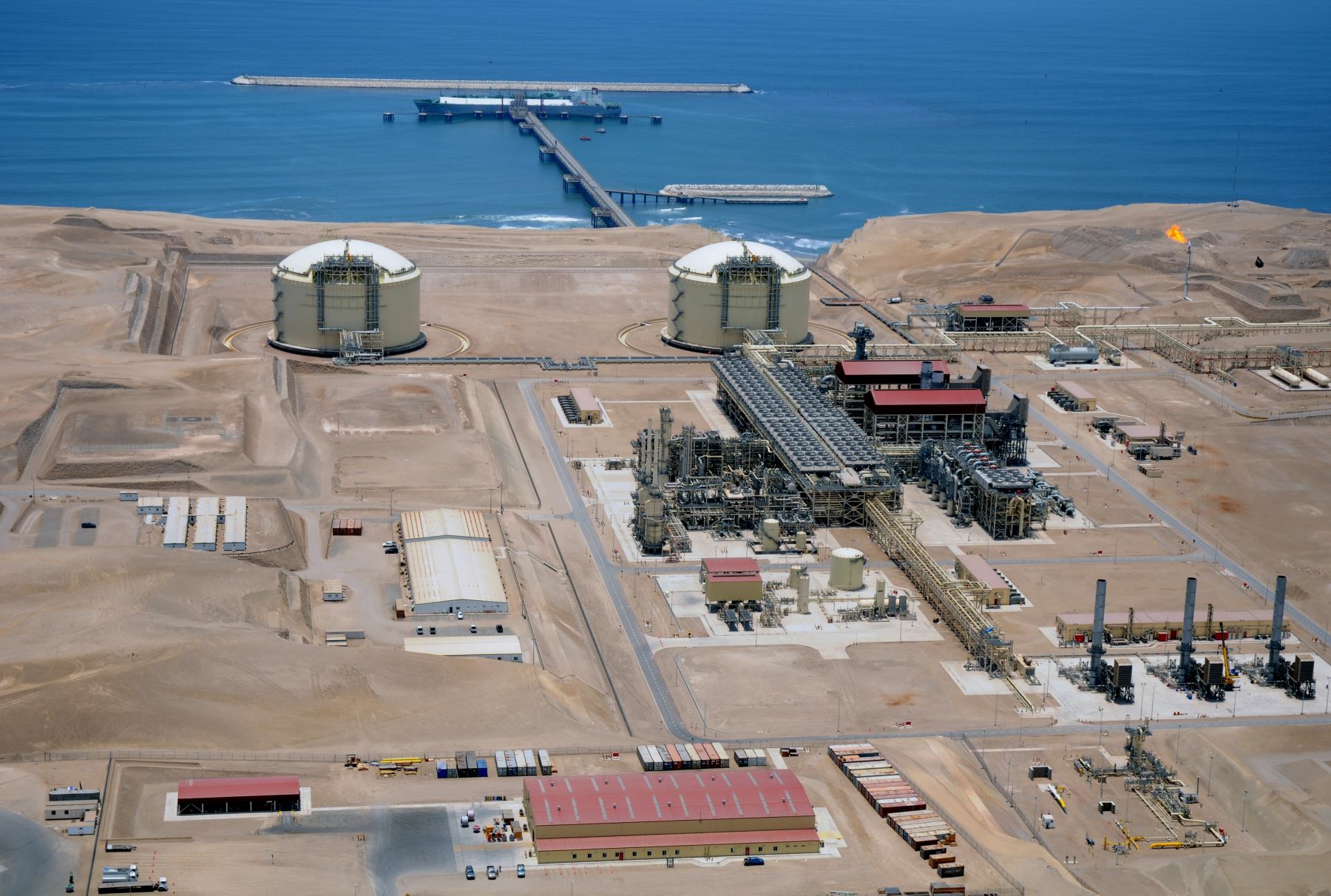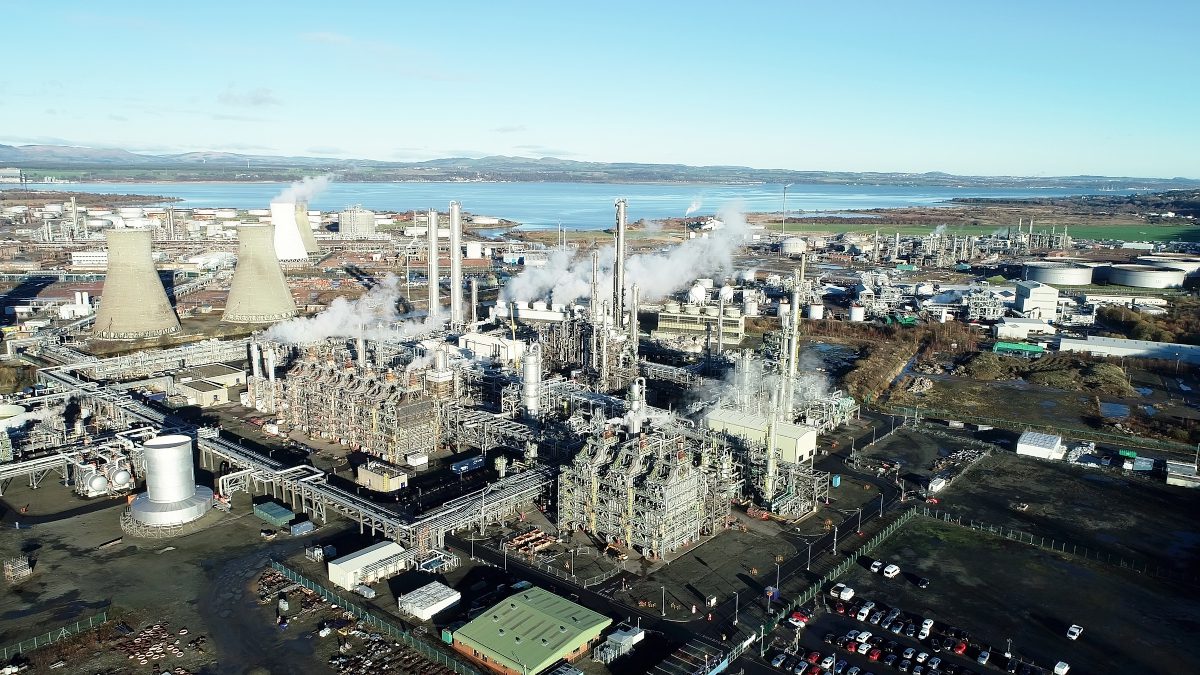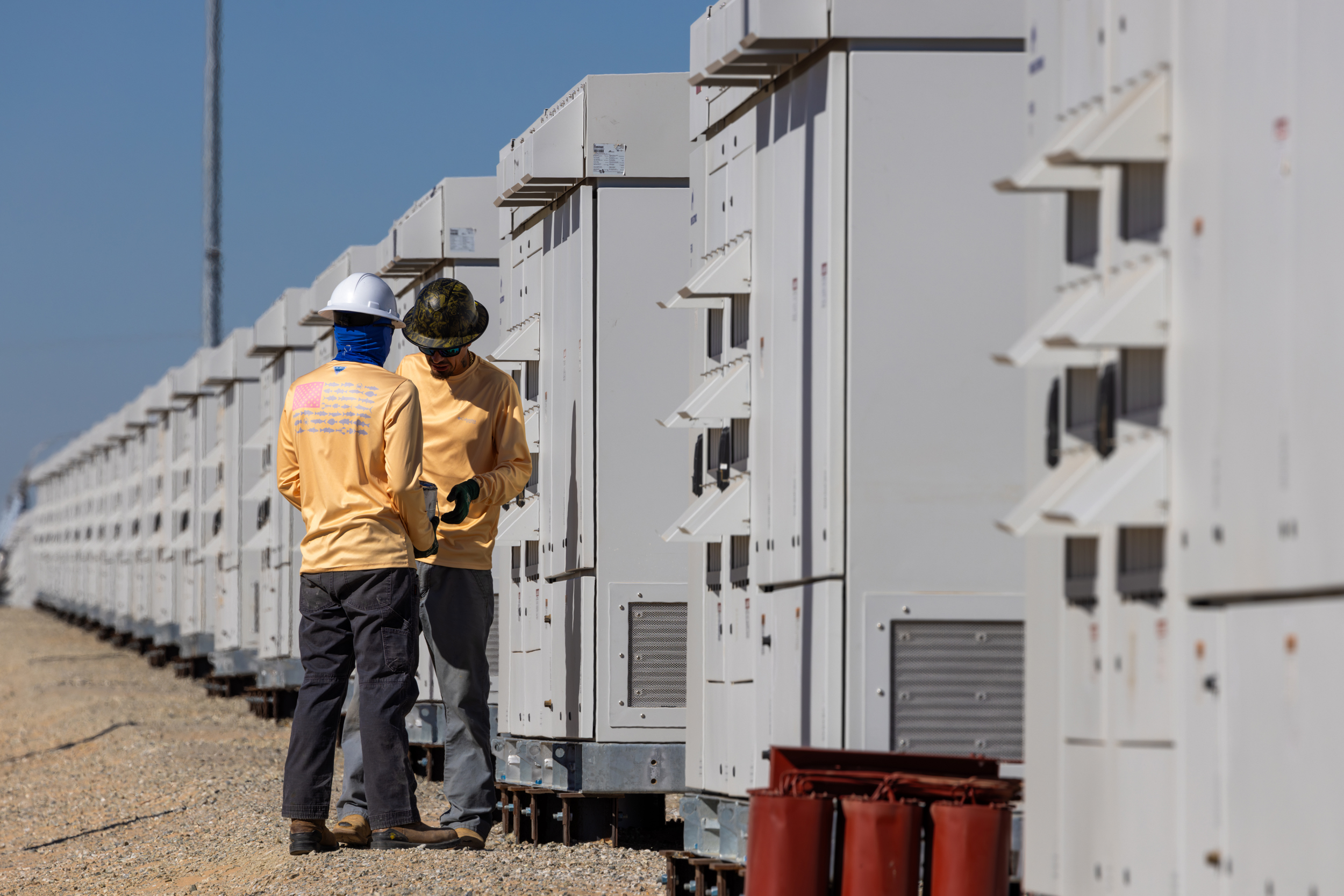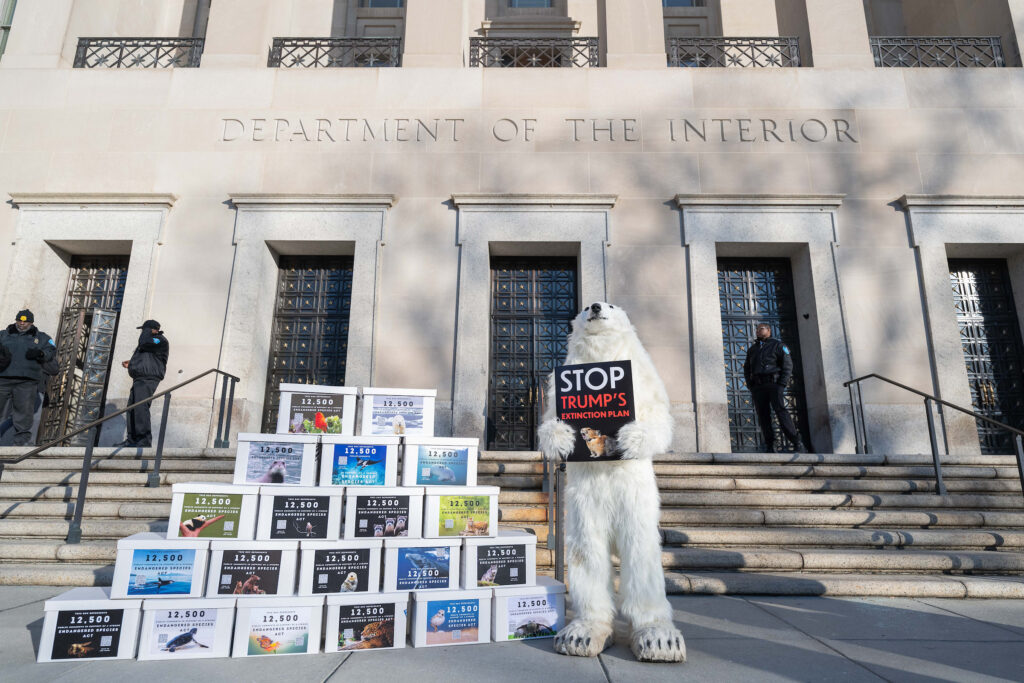The Trump administration plans to increase “regulatory flexibility” for oil and gas companies trying to find ways to dispose of copious amounts of toxic wastewater.
The wastewater, also known as produced water, comes back to the surface during oil and gas drilling. It contains both proprietary drilling fluids and naturally occurring hazardous compounds found in water underground, which can include organic compounds like arsenic and benzene, a carcinogen. Fracking generates massive quantities of this toxic wastewater that companies are struggling to manage. In the Permian Basin, injecting the water into underground disposal wells has led to earthquakes. The problem has spurred research into new disposal methods.
Under the Environmental Protection Agency’s current rule, discharges of produced water are more restricted in the Eastern United States than in the arid West. The agency announced last week that it will revise that regulation to “help unleash American energy.”
Among the items it’s considering: expanding the geographic range where treated oilfield wastewater can be discharged into rivers and streams.
We’re hiring!
Please take a look at the new openings in our newsroom.
See jobs
The EPA also said it will review new opportunities for using treated wastewater for industrial and agricultural applications, including for artificial intelligence and data center cooling, and to irrigate rangeland. The agency said it will consider options for extracting lithium and other critical minerals from produced water. The move builds on an EPA report during the first Trump administration that explored additional options for produced water management.
“EPA will revise wastewater regulations from the 1970s that do not reflect modern capability to treat and reuse water for good,” said EPA Administrator Lee Zeldin in the announcement.
Some states, like Texas, are already in the process of permitting discharges to waterways—in some cases after treatment, in other cases not—and conducting pilot studies on irrigating crops with treated produced water. The EPA announcement lends federal support to these efforts. While the statement said the changes would lower energy costs, the cost of treating produced water is still widely considered to be more expensive than injecting the wastewater underground.
“The regulations were subpar before, and now what’s going to happen is the government is allowing the public to be poisoned without any kind of consent or knowledge.”
— Pennsylvania state Sen. Katie Muth
Because this wastewater is toxic and the Trump administration is moving to roll back multiple public-health rules, some environmental protection experts greeted the announcement with deep concern.
“When I see phrases like lower energy costs, regulatory flexibility, beneficial reuse—they are all code words for relaxing protections to allow cheap disposal of what is very hazardous material,” said John Quigley, a fellow at the University of Pennsylvania’s Kleinman Center for Energy Policy and former secretary of the Pennsylvania Department of Environmental Protection.
Pennsylvania state Sen. Katie Muth, a Democrat who represents a district in the southeastern part of that state, called it “terrifying.”
“The regulations were subpar before, and now what’s going to happen is the government is allowing the public to be poisoned without any kind of consent or knowledge,” Muth said.
The EPA press office did not respond to a request for comment.
Updating a 1979 Rule
The EPA’s existing regulations were adopted in 1979. The rule allows produced water to be discharged to surface water for “beneficial use” by wildlife and livestock west of the 98th meridian, a north-south line that roughly divides the arid West from the water-rich East. The federal rules do not require treatment of the water, though some individual permits do.
Produced water is already discharged in that fashion in Western states like Colorado, Texas and Wyoming. Some of these permits predate the fracking boom.
The rules only set numerical standards for how much oil and grease can be in the produced water discharges. However, existing permits to discharge produced water typically include numerical limits for other constituents like boron, chloride and cancer-causing benzene.
East of the 98th meridian, the water must be treated at a centralized facility before it can be discharged. States there can also apply to the EPA to allow them to permit discharges. Texas, which is split in half by the 98th meridian, can now permit discharges statewide.

The existing rules were set long before the widespread adoption of hydraulic fracturing. Fracking generates greater volumes of produced water than conventional drilling. Fracking chemicals injected into wells often return to the surface in produced water.
Since 2005, fracking chemicals have been exempted from federal regulation under the Safe Drinking Water Act. Environmentalists call this exemption “the Halliburton loophole,” because of then-Vice President Dick Cheney’s ties to the oil and gas company. Even in states that require public disclosure, oil and gas companies are not typically required to share chemicals that are considered “trade secrets.”
Produced water is also exempt from standards for hazardous waste outlined by the federal government under RCRA, the Resource Conservation and Recovery Act.
There is no toxicity data on many of the constituents found in produced water, which hinders efforts to conduct risk assessment and set safety standards for the treated water.
The EPA statement said the Clean Water Act requires the agency to revise industry-wide wastewater treatment limits, called effluent limitations guidelines, as pollution control technology advances. “Technologies to treat produced water to a quality for safe discharge and reuse have become more effective and affordable,” the EPA said.
Mike Hightower, a civil and environmental engineer and program director of the New Mexico Produced Water Consortium, expects the EPA to regulate additional constituents beyond oil and grease. Hightower has given input to the EPA in its produced water and water reuse work.
The press release states the agency will consider expanding where treated wastewater can be used and discharged in the United States, presumably east of the 98th meridian.
Nichole Saunders, an energy attorney with the Environmental Defense Fund in Texas, said the existing EPA rules are “woefully lacking.” She said that “a revision could lead to something stronger” but only if the EPA conducts honest scientific and technical assessments based on toxicity information, analytical tools and treatment technology.
“Unfortunately, it remains to be seen whether this EPA is up to that task, and I fear for the worst,” she said.
Saunders said the planned elimination of hundreds of scientists in the EPA’s Office of Research and Development, according to a leaked plan, only added to her concerns.
The “Primary Impediment”
The recent announcement on produced water builds on efforts during the first Trump administration. The EPA interviewed representatives from industry, state government, environmental advocacy and academia for a 2020 report examining regulations for oil and gas wastewater under the Clean Water Act.
The report noted the cost of treatment was a “primary impediment” to discharging more wastewater. Representatives from state agencies questioned how treatable oil and gas wastewater really is. They also raised concerns about the effects on the environment and human health if more of this water were to be discharged in public waterways or spread on land.
This story is funded by readers like you.
Our nonprofit newsroom provides award-winning climate coverage free of charge and advertising. We rely on donations from readers like you to keep going. Please donate now to support our work.
Donate Now
Hightower is confident that treatment technologies have advanced enough to move forward to more produced water reuse. Pilot projects in Texas and New Mexico are studying the effectiveness of different treatment processes, including thermal desalination to remove the extremely high salt content of produced water in the Permian Basin.
Hightower thinks the EPA is “moving in the right direction,” and that more EPA guidance will create consistency across the states. He said that the EPA announcement shows the support in the new administration for the work states like Texas and New Mexico are already doing.
“I don’t think it will change the quality of the water requirements,” he said. “But it does give an impetus that this is a national strategy rather than an individual state strategy.”
“A Long and Sordid History”
If produced water treatment, reuse and discharges expand in the eastern United States, Pennsylvania could be among the states targeted. Disposing of produced water has long vexed fossil fuel companies in Pennsylvania, the nation’s second largest producer of natural gas after Texas.
The Marcellus formation is the large shale gas deposit beneath Pennsylvania, West Virginia and New York. Wastewater generated from drilling in the Marcellus is known to be particularly radioactive. Treating this waste creates sludge and residual byproducts with concentrated amounts of radioactive material.
“You have to keep in mind that Marcellus wastewater is among the most hazardous substances in the world,” said Quigley, the former head of Pennsylvania environmental protection. “We have geology that is vastly different than in other oil and gas producing states.”


Quigley said the idea of beneficial reuse of oilfield waste has a “long and sordid history” in Pennsylvania. This strategy, Quigley said, “has allowed all kinds of toxic waste to be ‘beneficially used,’ and it ends up being very harmful.”
“You’re basically putting lipstick on a pig when you do this,” said Ted Auch, the Midwest director at FracTracker Alliance, an organization based in Pennsylvania that studies the impacts of oil and gas development. “You’re letting them pretty up their waste and reclassify it as something that it has no business being reclassified as.”
As the volume and composition of Marcellus wastewater became clear, Pennsylvania changed some of its regulations. But the state is still coping with the fallout from the early years of the fracking boom.
For years, the state allowed unconventional drillers to repackage their wastewater as a dust suppressant for public roads, a practice that is now banned, though iIllegal road-spreading continues. A 2023 study found significant discrepancies in state records that are supposed to quantify where oil and gas waste comes from and where it goes. The state also permitted discharges of treated produced water from centralized waste facilities.
Research is ongoing to understand the long-term consequences for the environment and public health, but early results are alarming. Scientists have found elevated levels of radioactivity in the bodies of freshwater mussels living downstream from wastewater treatment discharge points and in the sediments of waterways where landfills that accept oil and gas waste discharge treated water.
The Pennsylvania Department of Environmental Protection did not respond to questions about any ongoing discharges of treated produced water.
“In Pennsylvania, we have not gotten the management of oil and gas wastewater right yet,” Quigley said.
States Retain Oversight
Even as federal regulations change, produced water discharges will still be subject to state regulation in Pennsylvania, Texas and other states given “primacy” to issue discharge permits. Texas is currently reviewing permit applications for large-scale discharges in the Permian Basin. The approach of individual state governments will shape how produced water discharge and reuse progresses.
“If the states have primacy, then the states have rules that they will use,” said Hightower. What the EPA chooses to do is “not superseding the states.”
“The state can protect its natural resources and public health regardless of what EPA does.”
— John Quigley, University of Pennsylvania’s Kleinman Center for Energy Policy
Pennsylvania has its own version of the federal Clean Water Act, the Clean Streams Law. Quigley said that law is stronger than the CWA. Pennsylvania also has an environmental rights amendment in its state constitution, which protects the right to “clean air and pure water.”
“The state does not have to follow the federal lead. The state can go beyond federal requirements,” Quigley said. “The state can protect its natural resources and public health regardless of what EPA does.”
Muth, the Democratic state senator, recently reintroduced two bills aimed at strengthening oil and gas waste regulation in the state. One would amend state law to reclassify this waste as hazardous, and the other would stop oil and gas companies from sending their waste to general landfills.
She said Pennsylvania has never reckoned with how much toxic waste it’s produced and continues to produce since the fracking boom began 20 years ago. “If you want to be an energy leader, then you better acknowledge that you are also a leader in waste production,” Muth said.
About This Story
Perhaps you noticed: This story, like all the news we publish, is free to read. That’s because Inside Climate News is a 501c3 nonprofit organization. We do not charge a subscription fee, lock our news behind a paywall, or clutter our website with ads. We make our news on climate and the environment freely available to you and anyone who wants it.
That’s not all. We also share our news for free with scores of other media organizations around the country. Many of them can’t afford to do environmental journalism of their own. We’ve built bureaus from coast to coast to report local stories, collaborate with local newsrooms and co-publish articles so that this vital work is shared as widely as possible.
Two of us launched ICN in 2007. Six years later we earned a Pulitzer Prize for National Reporting, and now we run the oldest and largest dedicated climate newsroom in the nation. We tell the story in all its complexity. We hold polluters accountable. We expose environmental injustice. We debunk misinformation. We scrutinize solutions and inspire action.
Donations from readers like you fund every aspect of what we do. If you don’t already, will you support our ongoing work, our reporting on the biggest crisis facing our planet, and help us reach even more readers in more places?
Please take a moment to make a tax-deductible donation. Every one of them makes a difference.
Thank you,







